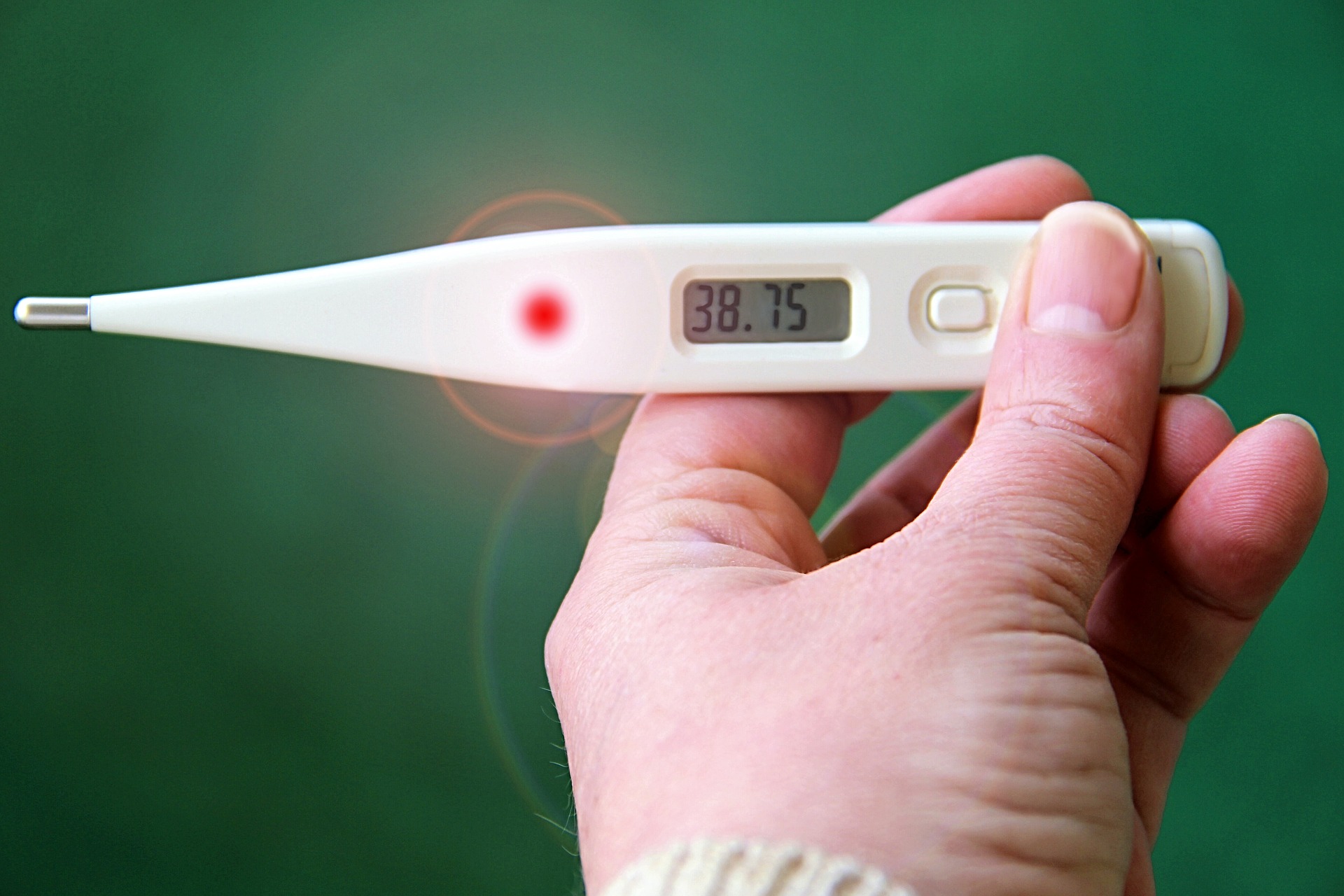Coronavirus
A high temperature can be a symptom of coronavirus (COVID-19). Read more about coronavirus or use our Coronavirus Risk Assessment to check your risk.
A fever can make you feel quite unwell. Not only can it make you feel hot and sweaty one minute and cold and shivery the next, it’s also associated with symptoms like muscle ache and fatigue.
Research shows that most fevers improve on their own. The UK’s National Health Service (NHS) recommends treating a fever by drinking plenty of fluids, keeping your body cool and using non-prescription pain medication to manage any aches and pains.
However, a fever can sometimes be a sign that your body is struggling with a serious illness, so it’s important to know what to look for and when to worry.
How can you tell if you have a fever?
Your body temperature changes throughout the day. Most adults have an average body temperature of around 37C, but anything between 36.5C and 37.2C is considered normal.
If your temperature exceeds 38C, you have a fever (37.5C in children). You can check your body temperature using a digital thermometer. If you don’t have a thermometer, touch your forehead with the back of your hand to see if you feel hot.
Why do you have a fever?
A fever is not an illness, it’s part of your body’s natural defence against infection. It’s thought that the increase in body temperature makes it difficult for harmful germs to survive.
A fever can often be caused by minor viral infections like the common cold. Other causes include a tummy bug (viral gastroenteritis), tonsillitis or the flu.
Sometimes a fever can be caused by non-infectious conditions like rheumatoid arthritis, a blood clot or the autoimmune condition lupus. It’s also possible to get a fever after being vaccinated or undergoing surgery (postoperative fever).
If you’re generally fit and healthy, you should be able to manage most minor illnesses at home. However, you’ll need to see a doctor if your symptoms suggest a more serious health condition.
When to see a doctor
If you have a fever that’s getting worse, is over 39.5C or has lasted for more than 5 days, and/or you’re worried about your symptoms, you should see a doctor immediately.
You should also seek emergency medical attention if you answer ‘yes’ to any of the following questions:
- Are you weak, light-headed, sleepy or confused?
- Do you have any new and/or severe muscle cramps?
- Do you have a stiff neck and/or sensitivity to bright lights?
- Have you got unexplained rashes on your body?
- Do you have a sore throat and are you struggling to swallow saliva or drooling?
- Are you struggling to breathe?
- Have you had a fit or seizure?
- Are you very thirsty?
- Is your pee darker than normal or does it hurt to pee?
- Have you recently travelled abroad?
- Do you have a headache or chest pain?
- Are you vomiting a lot?
- Have you had abdominal pain or blood in your poo?
- Is any part of your body red, hot or swollen?
- Have you swallowed any poison, toxins or tablets?
If you answer yes to any of these questions, see a doctor immediately. A severe or very high fever can cause the muscles in the body to spasm uncontrollably (convulsion). A fever with a stiff neck, headache and a rash can be a sign of meningitis, a serious illness that affects the tissue surrounding the brain.
Note: You should see a doctor if you have a fever and you:
-
have a weakened immune system caused by conditions and medications, such as:
- chemotherapy drugs
- steroids
- HIV
- immune deficiency treatment
-
have a pre-existing condition like asthma, diabetes or chronic lung disease
If you’d like to know more about treating a fever yourself, check out this article on how to treat a fever at home.




